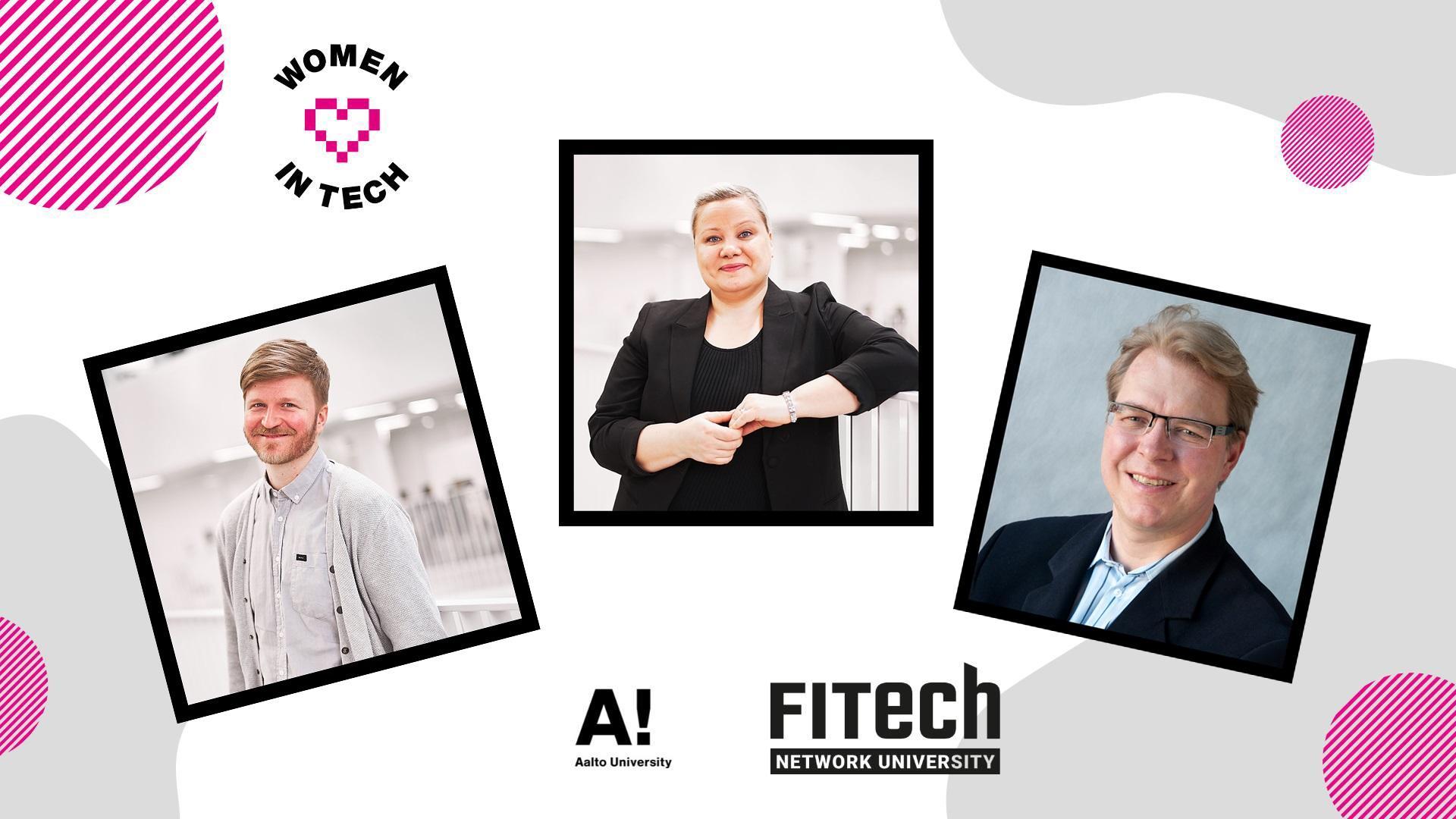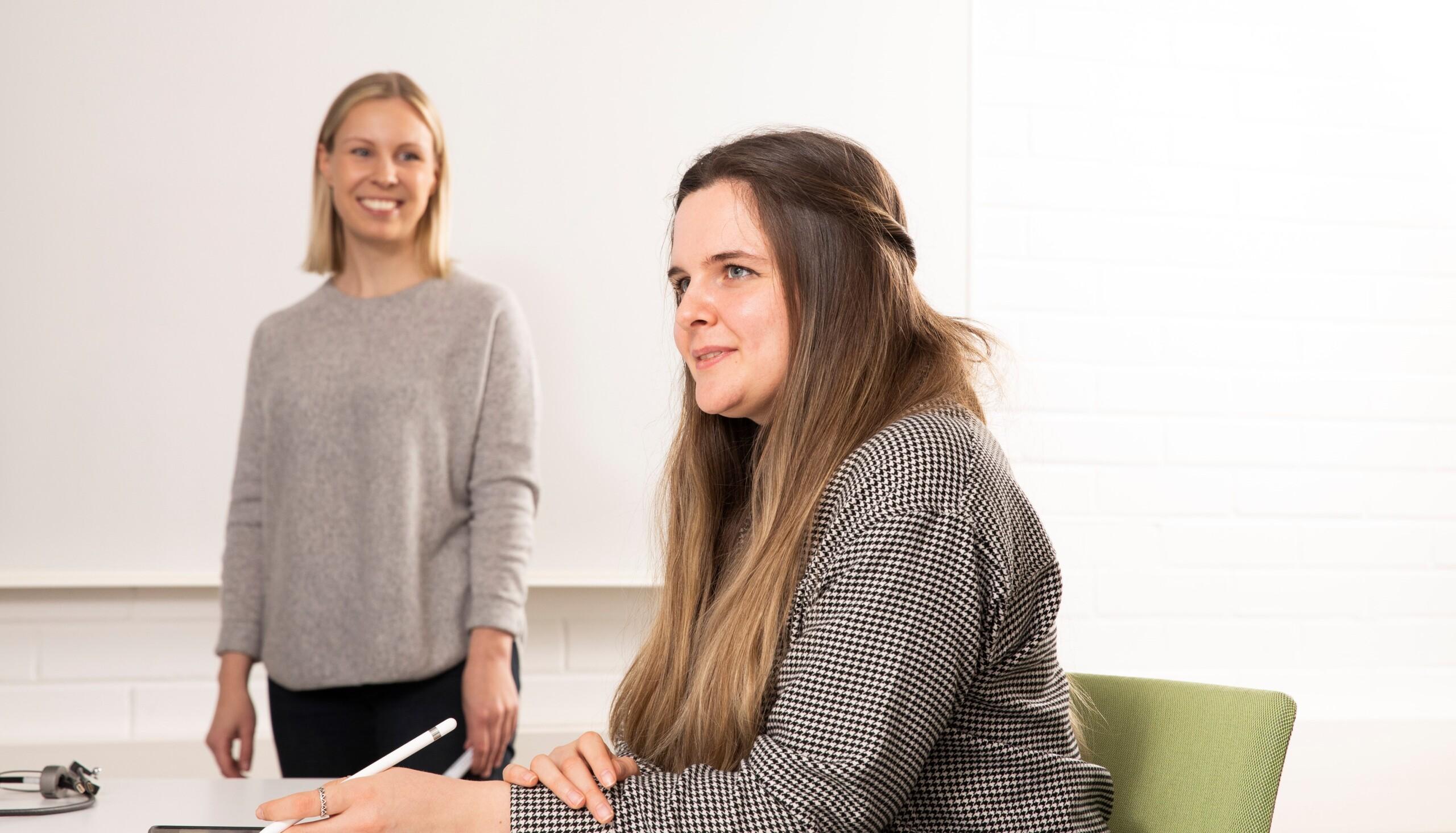FITech and Aalto University organised a virtual Women in Tech Breakfast Date on Tuesday, August 25th. Over 70 participants came to learn more about FITech studies and how to make the best out of studies alongside work.
Petri Vuorimaa, an Aalto University professor and the academic director of FITech, gave a presentation about FITech courses as well as the Digi & Data MOOCs that were launched recently.
Akseli Huhtanen, the learning designer from team FITech, shared his thoughts and best practices on studying alongside work. They are based on educational research but also Akseli’s personal experience on how busy adults can learn – and not just dream about it.
Create conditions that make learning easy
- The goal is to make learning a habit. Positive habits are cultivated by creating supportive conditions.
- Book time for learning in your calendar. Not just the course you’re taking now, but rather a “meeting” for learning every week.
Create social support (or pressure) to learn
- Find yourself a learning buddy or partner.
- Book weekly or monthly meetings with your learning buddy. Share what you’ve completed since last meeting.
Find meaningful learning targets
- This is crucial to your motivation: Learning shouldn’t feel like an obligation, and this can be ensured by finding the right topics, content or courses.
- Ask a thematic group for suggestions. If you’re interested in machine learning, ask in an AI-related social media group.
Plan your learning, track your progress
- You should make a clear plan of your learning: What milestones do you have, what are the specific skills or abilities you want to learn, when will you reach them?
- The plan can be anything that works best to visualize the sub-goals for you.
- Make a mark when you have reached a certain milestone: a completed assignment or a learned skill.
Write, draw, organize
- According to the science of learning, there is one thing that affects our memory more than anything else: actively working on the topic.
- It is super important to be an active practitioner, rather than a passive observer, if you really wish to learn something.
- In some accosions, you need to activate yourself: take notes constantly, underline, write blogposts about the topic – or just draw, doodle or knit while you learn.
After the presentations we had an interesting discussion about studying and learning, and as one of the participants said, this was a great Breakfast Date because it provided actionable points on how to improve one’s knowledge easily – and for free. That’s gold dust!
Get to know Akseli’s tips on the video below (in Finnish).
Thank you for participating!


